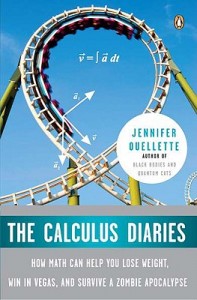Even though I long abandoned AOL for Gmail, I still find it fun to see my email inbox full, even if a creepy computer voice no longer announces the presence of my new email. As I’m working on my new article topic for my J800 feature (which triggered my seething frustration and puppy-picture needing earlier this week) I’m running into the problems presented by email interviews.
I prefer to do my interviews over the phone, but I like to have an appointment set up, I find it easier for everyone than cold calling because no one gets caught unaware. Which reminds me of the time I interviewed National Medal of Science winner Elaine Fuchs on post-its when I was dressed as Wonder Woman last Halloween because I wasn’t expecting her call, (the article didn’t really turn out that bad) but that is an unnecessary tangent.
Anyway, there are pro’s and con’s to the email interview, but for my latest topic I really just needed someone to talk to me to give me background, and that can’t be done on email –it takes too much space and time. So after getting three requests for email interviews (which is largely due to the fact that I email before hand to set up an appointment, my own downfall) I was very happy to finally have one source come through over the phone.
I’m feeling much better about the whole thing just having the one interview under my belt because I have a better grasp on the topic and my source recommended other people for me to talk to (fingers crossed they’ll be available by phone too.) I know there are some publications that make a point of not allowing email interviews, but I don’t think they are all together bad. Email has its place in the proverbial “writer’s toolbox” you just can’t rely on it all the time.
You really can’t build an entire article based off of emails, you need to get at least one source on the phone. But, email can be useful for getting direct comments from very busy people. Case in point, I would never have gotten comments from Francis Collins for an article I did for BioTechniques on the Rock Stars of Science campaign if I hadn’t caught him by email. I would never have gotten him on the phone in time for the article because I would have had to go through his secretary and it would have gotten messy from there.
So email can be useful, but I still think that when you need a lot of information its best to actually talk to someone. You can’t switch gears, or go off on tangents on email which is I think my biggest problem with it. You also can’t gauge a source’s reaction to your question. I find it strange actually that so many people prefer emailing responses to questions because I think it takes way more of their time to do so than to just answer a few questions verbally.
I also think I like the phone more than in-person interviews because I think it makes people less nervous to just talk into the phone and not see my typing away frantically. I think when people see you taking notes they clam up and in my experience I’ve gotten plenty of people to really open up on the phone. Every journalist has their own way of doing things, and I’m sure there are those that would completely disagree with me, and maybe as I get more experience my opinion will change, but for now I think the phone works best — provided I can get someone to answer it.
